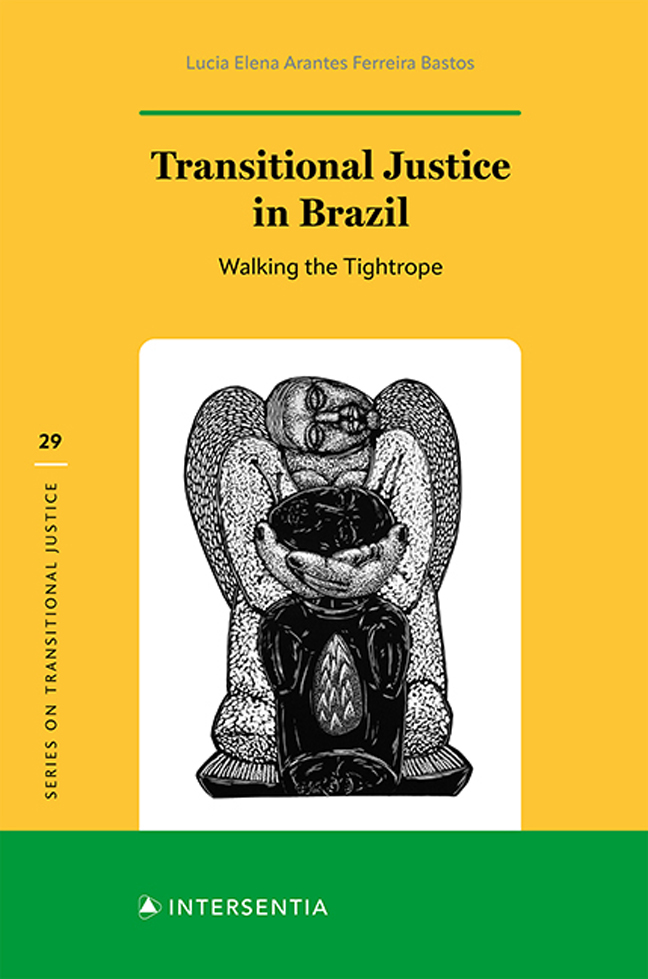Book contents
- Frontmatter
- Foreword
- Acknowledgments
- Contents
- List of Acronyms and Abbreviations
- 1 Introduction: Historical Perspectives from the Brazilian Dictatorship and Transitional Justice Measures
- Part I The Intersection Between Amnesty, the Rule of Law, and Authoritarian Legacies
- Part II Steps Towards Reparations, Accountability, and Truth
- Part III Complex Forms of Reparations, Accountability, and Truth-Seeking: Actors Beyond Agents of the State
- Bibliography
- Index
- About the Author
1 - Introduction: Historical Perspectives from the Brazilian Dictatorship and Transitional Justice Measures
Published online by Cambridge University Press: 29 February 2024
- Frontmatter
- Foreword
- Acknowledgments
- Contents
- List of Acronyms and Abbreviations
- 1 Introduction: Historical Perspectives from the Brazilian Dictatorship and Transitional Justice Measures
- Part I The Intersection Between Amnesty, the Rule of Law, and Authoritarian Legacies
- Part II Steps Towards Reparations, Accountability, and Truth
- Part III Complex Forms of Reparations, Accountability, and Truth-Seeking: Actors Beyond Agents of the State
- Bibliography
- Index
- About the Author
Summary
In October 2018, at an event celebrating the 30th anniversary of the 1988 Constitution, a justice of the Brazilian Supreme Court said that, currently, he no longer preferred to call what happened in 1964 a coupd’état, but rather a “movement”, which is a multi-sense word that could apply to a whole spectrum of political actions, since in politics almost anything might be termed a “movement”. Moreover, using a word with such a generic meaning for something so concrete might in fact be seen as a way of hiding or obscuring the reality that a President was overthrown, thousands of Brazilians were exiled or had their political rights suspended, thousands more were tortured, and more than 400 people were killed or were the victims of forced disappearances.
Likewise, when one says “movement” instead of dictatorship or coupd’état, the perception of political evil is affected, and the past that once was real becomes another phenomenon, another experience. Indeed, this past became so different and unusual that, in December 2018, during a truckers’ strike that threatened to stop the country, it was possible to see posters in the streets calling for military intervention and dictatorship. Similarly, in April 2020, during a rally, protesters also carried signs demanding military intervention and called for Brazil’s Congress and Supreme Court to be shut down, making allusion to the restoration of legislation commonly issued by the Brazilian dictatorship to close the parliament and restrict civil liberties (like the Decree “AI-5”). Unsurprisingly, those facts are a definite sign that the project to create an antiauthoritarian culture in Brazil may have failed.
This and many stories related to the 1964 – 1985 period that have lately emerged serve to demonstrate that this is an opportune time to study Transitional Justice mechanisms and how they have been implemented over the more than 30 years since democracy and the Rule of Law returned to Brazil. It is also a time to assess whether all that has been done has in fact been able to restructure the country, especially at a time when the Inter-American Commission on Human Rights has stated that Brazil is backsliding in the promotion of human rights.
- Type
- Chapter
- Information
- Transitional Justice in BrazilWalking the Tightrope, pp. 1 - 24Publisher: IntersentiaPrint publication year: 2023

